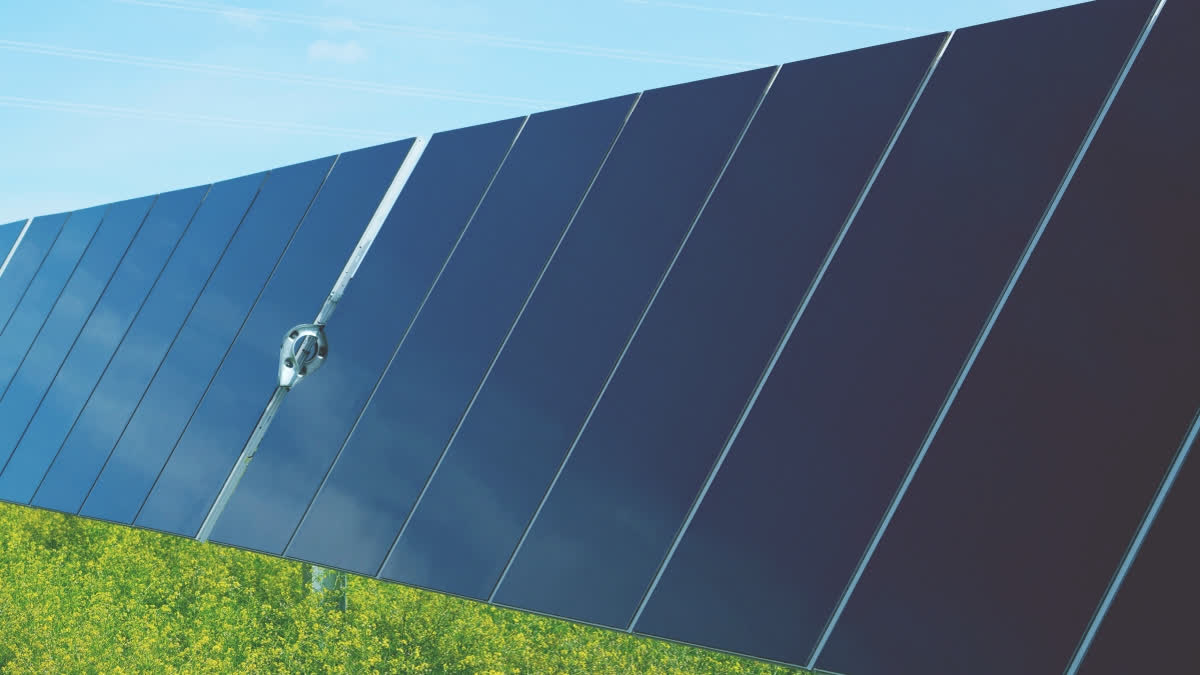Washington: India's comprehensive approach, which combines incentives, smart trade measures, and tangible deployment targets, serves as a template for like-minded nations whose solar manufacturing industry have been decimated by China's state-subsidised global dominance, First Solar CEO Mark Widmar has said.
In an interview with PTI ahead of Prime Minister Narendra Modi's State Visit, Widmar said that the international solar industry has experienced a noticeable shift in the ease of doing business in India over the past decade, with both Federal and state governments facilitating investments and permitting. When one combines this with the quality of infrastructure and logistics now available in the country (India), one gets increased investor confidence, he said.
India and the United States are two of the world's largest democracies and share an interest in countering China's influence. In our view, this extends to addressing the state-subsidised dominance of China's strategic industries including solar. By investing in India we are proud to be enabling the clean energy self-reliance of a major US ally in the Indo-Pacific and a strategic partner in countering China's influence in the region, Widmar told PTI.
Specific to the solar industry, India is one of a number of countries that has seen its domestic solar manufacturing industry decimated by China's strategy of state-subsidised global dominance, but it stands apart in the decisiveness of its response, Widmar said in the interview.
The country's comprehensive approach, which combines incentives, smart trade measures, and tangible deployment targets, provides precisely the kind of level playing field needed for non-Chinese solar manufacturers to compete on their own merits, and serves as a template for other like-minded nations, Widmar said in response to a question.
Responding to a series of questions ahead of the US visit of Prime Minister Modi, Widmar said India has seen a clear and consistent push to decarbonise the country's electricity sector since 2014, when the government, under Modi, set its sight on deploying 100 gigawatts of solar energy by 2022.
The country was an early pioneer among major democracies in leveraging policymaking to establish not just ambitious deployment and decarbonisation targets, but a clear pathway to becoming self-sufficient in producing the technologies needed to get there. The results are plain to see: India ramped up to sourcing 40 per cent of its energy from non-fossil sources almost a decade ahead of schedule and the country is home to a fast-growing photovoltaic solar industrial base, he said.
First Solar's history in India goes back to 2011 when it first opened an office to serve the market with its cadmium telluride (CdTe) thin-film solar panels in the early stages of the National Solar Mission. As India scaled its solar programme in 2014, it grew its presence in the country, developing and operating utility-scale solar power plants, he noted.
"Soon after we pivoted our global strategy to focus on developing and scaling our highly differentiated PV technology, we also made the decision to locate new manufacturing capacity close to demand. As a result, we were well placed to respond to both growing demand for our technology and the Indian government's efforts to incentivise domestic manufacturing," he said.
"In 2021, we announced an investment of approximately USD700 million in a new, fully vertically integrated solar PV manufacturing facility in Tamil Nadu with an annual nameplate capacity of 3.3 gigawatts, the CEO said. This facility is on track to begin commercial production in the second half of this year and will employ approximately 1,100 people. It will be India's first fully vertically integrated solar manufacturing plant producing a fully functioning module in a matter of hours and will also feature the country's first high-value PV recycling facility.
What's more is that the manufacturing facility will produce solar modules without any dependencies on China's crystalline silicon supply chains. This aligns well with the government's Make in India efforts, Widmar said. Responding to a question, Widmar said as the US and India scale clean energy innovation and manufacturing in parallel, there are opportunities to collaborate on enabling the cycles of innovation required to develop tomorrow's technologies.
While neither country can count on China to collaborate in research and development, the US and India have the capabilities and experience to lead the evolution of solar energy technologies and a formal recognition of this could spur greater engagement between research organisations and companies in both countries, he said.
Solar manufacturing and its value chains are overwhelmingly concentrated in China. The US and India, with their growing solar manufacturing capabilities, have an opportunity to address what too many countries think is a trolley problem' where they feel compelled to ignore the risks posed by the overreliance on Chinese crystalline silicon supply chains for fear of compromising their solar deployment targets. The US and India need to send a clear message that alternatives exist, he added.
Our facility in Tamil Nadu, which was financed by the US Development Finance Corporation (DFC), is an example of how market access benefits both countries. The US and India must ensure that this level of market access isn't simply sustained but scaled, perhaps in the form of a framework agreement and financing designed to effectively counter China's dominance of clean energy supply chains, Widmar said. (PTI)
(This story has not been edited by ETV Bharat staff and is published from a syndicated feed.)
